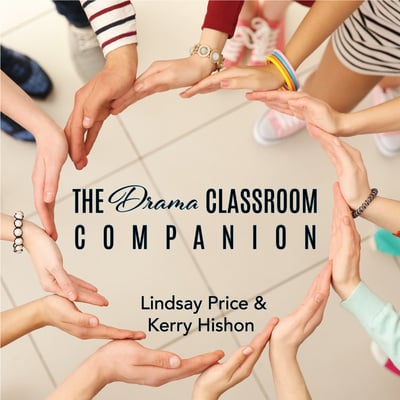How Do You Manage Overcommitted Students Who Miss Rehearsals?
In the world of theatre, orchestrating a seamless production is a delicate balance. Directors often find themselves having to gracefully handle overcommitted students juggling demanding schedules. It’s helpful to have practical insights and strategies that strike the right balance between individual commitments and the collective rhythm of rehearsals. But how do we find the finesse required to keep the show running smoothly while supporting each performer on their individual journey?
We went straight to the source to get the inside scoop from those who’ve been there: drama teachers.
We asked: How do you manage overcommitted students who miss rehearsals?
Engage in Open Communication
It is very frustrating to have this happen, and I go to great lengths to outline the time commitment (the rehearsal schedule is out before auditions happen) and make it very clear that the expectation is that the show is the priority for the duration of the process. Parents are told all of this, students are told all of this — every cast member knows it. It helps, somewhat. Luckily, I have had casts who are at least honest about requests for time off, and most of them, I decline (no, you can't miss this rehearsal to go and audition for another play). Sometimes, I accommodate actors who have previous commitments, if they are particularly focused and able to put their full attention into the rehearsals that they can attend. I have little to no patience for those who have been accommodated and then show up and use the “I wasn't here, so you (me, the director) need to fill me in.” (Anne M.)
Literally had this happen last show. I pulled her aside and said, “I think you’re too busy. You need to make a decision on what things are important to you right now. No hard feelings if you quit.” She agreed and then quit the next day. I told her it was the right decision and that if theatre was still an interest, and she made time, she should definitely audition again. Her leaving left an opening for another student and she did wonderfully. Sugar coating things for kids is dangerous and not healthy. Treat high school students like the young adults they are and middle school students like the young, inexperienced children they are. They are all much more resilient than anyone gives them credit for and it gives the students some advocacy in their lives and builds their confidence. It also allows for students to step up to some responsibilities. (W.T.)
Establish Clear Expectations
Oof. This is big. I had three actors show up to my first one-act rehearsal. I called them in and told them that I wanted to see more commitment or I'd have no choice but to cancel the show. I haven't had issues since. (Caitlin D.)
We send a letter home to parents and students outlining the commitment at the beginning of the audition process. Then, if they are cast, they must sign a contract pretty much agreeing to the three-strike rule and that they have full availability during production week. This seems to keep both students and parents accountable. (Natalie C.)
Everything is made very clear up front and an agreement is signed when auditions take place and when rehearsals start. (Cherish T.)
I try to meet them in the middle. I also make them sign a contract at the beginning of the production. This contract creates a limit for missed days. (Baldwin PR)
We assigned understudies to every role, and our policy is after two absences the understudy gets the role. It does two things: 1) the cast knows up front how important attendance is and 2) the understudies really learn the parts! (Philly P.)
Prioritize Essential Rehearsals
I require that the show take precedence two weeks before we open. I also don't cast people who have more than one consistent conflict a week. I've also started doing shorter rehearsals during the week and adding a Saturday. (Spartan Drama)
Implement Consequences
Have understudies to replace them. (Elliott H.)
I recall telling one particularly overscheduled student that I would need to assign them as the understudy. They were a bit sad, but in the end thanked me for taking the pressure off. (Jeff M.)
Cast swings! Miss three rehearsals and the swing gets the part! (Linda)
Involve Parents or Guardians
Depends on the circumstances. If their leaving is detrimental to the performance and we have no alternative, I try to talk to them and their parents about finding solutions to alleviate their stress in order to retain them. If their leaving isn’t impactful, I wish them well on their way and congratulate them on making a hard decision in learning how to manage their own stress levels. (Vicky B.)
Sit them down with a parent present. Tell them they seem overcommitted because they have missed rehearsals. Tell them it’s not fair to the rest of the cast. Then spell out that a solution to remedy this includes permission to leave the show. Ask if they want you to step out for five minutes while they talk. Then get an answer right then and there. (Susan G.)
Discuss Schedules & Time Management
I ask for conflict dates AND a list of other activities and when they participate. If this entails missing what is too much for ME to deal with, then they are cast in a smaller capacity. They usually drop anyway. This gives those hard-working although often second-level people a chance. This goes for kids and adults. (Beatriz E-M.)
Parents also need to see when their child has too much on the go. Allowing them to step down from something doesn't mean they failed. Casting someone who has a lot on their plate usually results in roles they aren't happy with. You can't cast someone into a role that requires time and dedication if they aren't going to be at rehearsals due to too many other commitments. (Cherish T.)
They need to ask themselves, how did they become over committed? Being an adult is about time management and honoring the commitments that you make. You don’t get to be everywhere and be in every show and do everything you want because what happens is you stop showing up for the things you really don’t want to do. (Carolyn R.)
Discuss Commitment
If their role is main, I try to talk with their parents and the student to get them to finish what they started, and if that doesn’t work, replace them. If they do stay and finish, I make a note never to cast them as a main or pivotal character again, unless they somehow prove that they are prioritizing better. They broke trust in their commitment and one way they can prove they are trustworthy again is by doing smaller or insignificant jobs well. (Adra L.)
It's hard to find a balance sometimes, especially when they have multiple passions that pull them in many directions. However, a production is a commitment and there comes a time when a decision has to be made. You either make the time and commit to the cast, crew, and show or you appreciate your time spent and move on to what matters more to you. You can have many passions in life but if you aren't careful, you'll burn out. That seems to be a major factor in today's teens/youth. (Cherish T.)
It is impossible to give 100% to each activity at the same time. Kids learn from making hard choices, from time management, from failure as much or more than from success. If it were me I would approach it as a collegial lesson. “The cast depends on each person to create a whole performance. People count on you. Their time and effort is wasted if you are not prepared on stage the night of the performance. It harms the play, the cast members, and you. Another person from tryouts who is interested and prepared but not chosen is harmed as well. You take their chance to shine away by taking the part but not fully committing to it.” (Dianne F.)
Theater MUST have its place and time amongst all other activities! Anything worth doing is worth doing well and that means effort. (Mandy G.)
Create a Supportive Environment
I try to be really accommodating because they are 6th–8th graders, but it is incredibly frustrating. (Eliza L.)
With extreme patience! (Jane R.)
I am big on speaking for people who will never speak. Folks who say no to things to honor being in the show, miss out on events or re-schedule events to honor the show needs, skip lunch because otherwise they will be late, teach others it is fine to say no. You do not need to do anything. I have been in situations where other production members don't see that. More often than not, what I say goes or I say "Okay, when x, y, z happens (and it almost always does) it's on you to deal with and not me. (Kevin S.)
I try to work with mine but unfortunately some of our other programs aren’t as flexible. In those instances I make sure my students know it’s not me forcing them to choose. (JMS)
In our small school, I am always sharing with all athletics. It makes for late nights. I'm tired, they're tired. I make sure we have lots of snacks and water. I try to give grace when I have to. It's so hard. But if you think they're not committed, I always say they are always auditioning, showing who they are. (Dotty D.)
I’ll work with kids. They get small parts that don’t really influence the show whether they are there or not. But I want a kid to be able to be in a show if they want to. If they aren’t honest and aren’t there, they aren’t in the scene and lose lines, etc. I used to fret. Now I just allow them to do their thing. (V.F.)
Additional Reading:
Helping Drama Students Understand Commitment
Related Articles
The Drama Classroom Companion
by Lindsay Price & Kerry Hishon
The Drama Classroom Companion is filled with articles and exercises to build the skills needed for theatrical performance as well as real world skills like creative thinking, critical thinking, collaboration, and communication.
The Rehearsal Companion
by Kerry Hishon
You’ve chosen the play, paid the royalties, done the script analysis, held your auditions, and cast the show. Tomorrow is the first rehearsal. Are you ready? Really ready? The Rehearsal Companion can help!





